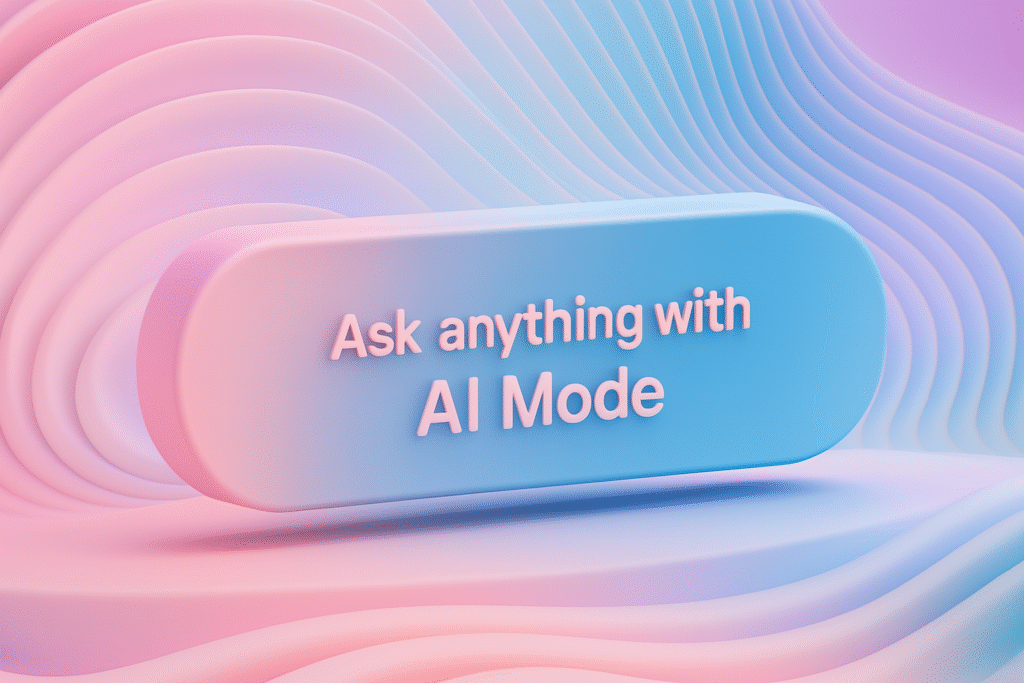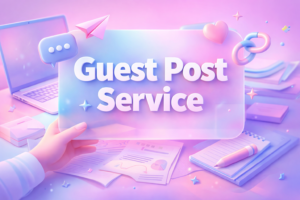The process of online search is undergoing its most significant and disruptive transformation in over a decade.
With the introduction and integration of Google’s AI-powered search features, we are moving beyond an era of keywords and blue links into a new paradigm of conversational, AI-driven discovery.
Initially tested in Search Labs as the Search Generative Experience (SGE), these powerful capabilities are now being woven into the fabric of the main search results page, most notably through a new “AI Mode.”
This fundamental shift doesn’t just change the user interface; it redefines the very nature of information retrieval, creating profound implications for how users find what they’re looking for and how businesses must adapt to connect with their audiences effectively.
What is Google’s AI Search Mode?
Google’s AI Mode is a sophisticated, enhanced search experience designed to provide users with direct, synthesized, AI-generated answers to their queries.
Instead of simply presenting a ranked list of websites for the user to sift through, AI Mode acts as a research assistant.
It processes a query, scours the web for relevant information, and then constructs a comprehensive, easy-to-digest overview at the very top of the search results page.
This development has significant implications for Search Engine Optimization, as businesses will need to adapt their strategies to ensure their content is discoverable and utilized by AI models.
This feature is particularly powerful for handling complex, multi-faceted, or exploratory questions that would have previously required numerous individual searches.
For instance, a user planning a trip could ask, “What are some family-friendly destinations in Europe for a 10-day trip in August, focusing on history and outdoor activities but avoiding major crowds?“.
The AI can break this complex query down, research each component, and generate a curated summary with destination suggestions, potential itineraries, and key considerations – all in a single response.
These AI-powered results, officially called “AI Overviews,” are dynamic and multimodal.
They are not limited to text but can seamlessly integrate images, product carousels, maps, and even functional code snippets, offering a richer and more immediate search experience.
According to Google, this new methodology facilitates a more natural and intuitive exploration of topics.
It’s built on Google’s most advanced AI models, including the powerful Gemini family, which are engineered to understand context, nuance, and user intent in a remarkably human-like way.
This allows users to ask follow-up questions and pivot their research without losing the thread of their original inquiry.
4 Key Features of AI-Powered Search
The new search experience is a suite of interconnected features that collectively redefine the search journey.
It’s not just about a single AI answer box; it’s about creating a more interactive and intelligent information ecosystem.
- AI Overviews: As the most visible feature, AI Overviews provide a concise snapshot of key information, complete with links to the web pages used as sources. The goal is to give users a foundational understanding of a topic instantly. These overviews are carefully constructed to synthesize information from multiple, often diverse, perspectives, and the sources are cited to encourage deeper exploration and verification.
- Conversational Follow-ups: This feature transforms search from a series of disconnected queries into a continuous dialogue. The AI retains the context of the conversation, allowing users to ask subsequent questions naturally. For example, after searching for “best cameras for landscape photography,” a user could follow up with “which of those are under £1,000?” and then “compare the top two for video quality.” The AI understands that “those” and “the top two” refer to the results of the previous queries.
- Multimodal Search: AI Mode is inherently multimodal, breaking down the barriers between different types of input. Users can type a question, ask it aloud using their voice, or even use their camera. With Google Lens integration, you can point your phone at a landmark and ask, “What is the history of this building?” or take a picture of an unfamiliar dish on a menu and ask, “What are the ingredients in this?” This flexibility makes search more accessible and intuitive in a wider range of real-world scenarios.
- Integration with the Shopping Graph: For any query with commercial intent, AI-powered search taps into Google’s colossal Shopping Graph, a repository of over 35 billion product listings. This enables the AI to generate incredibly detailed product comparisons, summarize user reviews, highlight key features, and provide up-to-date pricing and availability information directly within the search results. This turns search into a powerful pre-purchase research tool, guiding users from initial interest to a confident buying decision.
Why Should Businesses Care?
The shift to AI-powered search is not a minor algorithm update; it represents a fundamental evolution in digital marketing and online visibility.
Businesses that fail to understand and adapt to these changes risk becoming invisible. Here are the critical reasons why every business must pay close attention:
The Changing Face of SEO
For years, the primary goal of search engine optimization (SEO) has been to secure a top-ranking position on the results page.
With AI Overviews now occupying the coveted “position zero” at the very top, the traditional list of organic results is significantly pushed down the page.
This means that even a number one organic ranking may now sit “below the fold,” potentially leading to a sharp decline in visibility and click-through rates.
However, this disruption also creates new avenues for success.
The links featured as sources within AI Overviews are incredibly valuable, as they are presented as authoritative references supporting the AI’s answer.
The key to being cited appears to be a renewed focus on creating high-quality, deeply informative, and well-structured content that directly and comprehensively answers user questions.
As Google’s own documentation suggests, the principles of E-E-A-T (Experience, Expertise, Authoritativeness, and Trustworthiness) are more critical than ever.
The AI is being trained to identify and prioritize content that demonstrates these qualities. This focus on fundamentals, like helpful content and a technically sound website, remains the bedrock of modern SEO.
The Rise of “Zero-Click” Searches
A significant concern for many businesses is the acceleration of “zero-click” searches, where a user’s query is fully answered on the search results page itself, eliminating the need to click through to any website.
While this provides a highly efficient experience for the user, it can decimate traffic for businesses, particularly publishers and blogs that rely on organic visits for revenue.
To combat this, businesses must evolve their content to be a “destination,” not just an answer. The goal is to provide value that cannot be replicated in a simple AI summary.
This includes creating in-depth guides with unique data, offering interactive tools and calculators, building a strong community around your brand, or providing compelling brand storytelling and video content.
The aim is to give users a compelling reason to click through and engage more deeply with your brand’s ecosystem.
The Importance of Structured Data
In an AI-driven world, structured data (like schema markup) becomes an essential communication tool between your website and Google.
This code helps the AI to quickly understand, categorize, and extract key information from your content.
Specific types of schema, such as Product, Review, HowTo, FAQPage, and LocalBusiness, can directly feed the information needed to populate AI Overviews and other rich results.
For local businesses, this is absolutely important. A fully optimized Google Business Profile is non-negotiable. However, the AI synthesizes information from across the web, so ensuring your business’s Name, Address, and Phone number (NAP) are consistent everywhere is vital.
Furthermore, actively cultivating reviews on multiple third-party platforms can provide the AI with a richer dataset to draw from when evaluating and recommending your business.
A New Era for Content Strategy
The move to AI-powered search demands a complete rethinking of content strategy.
A narrow focus on keywords is no longer sufficient. Businesses must now adopt a user-intent-centric approach, anticipating the complex questions and conversational journeys of their target audience.
Creating content that comprehensively addresses these needs is the new standard for success.
This translates to a greater emphasis on long-form, pillar-style content and topic clusters that explore a subject from every conceivable angle.
As the experts at Yoast note, the objective is shifting from simply ranking for a term to becoming an indispensable and authoritative resource that the AI trusts and references.
Content should be structured for conversation, with clear headings, subheadings, and concise answers to likely questions, making it easy for the AI to parse and utilize.
The Future of Search is Here
Google’s AI-powered search is no longer a distant concept; it is a present-day reality that is actively reshaping user behavior and business strategy.
While it is still evolving, it’s clear that this represents a permanent and significant shift in how we interact with information online.
For businesses, this period of transition is one of both immense challenge and incredible opportunity.
Those who cling to outdated tactics will likely be left behind. However, businesses that embrace this change, by adapting their SEO, creating destination content, leveraging structured data, and building a user-centric content strategy, will be perfectly positioned to thrive in this new era of search, building deeper and more meaningful connections with their audience.









